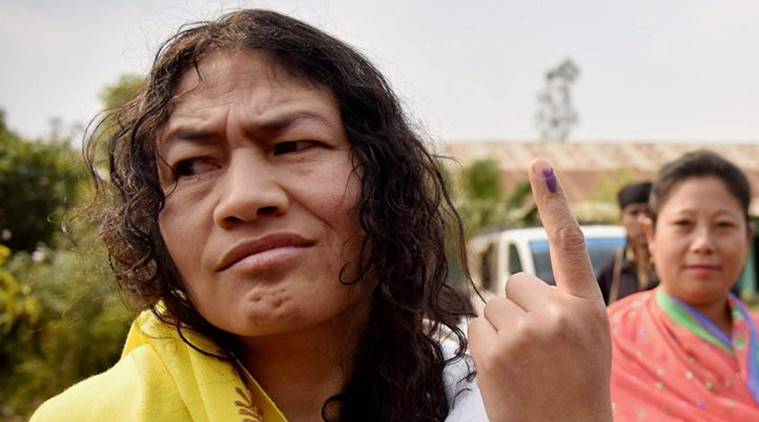Opinion Iron too weak for fire: Do we only like women on a pedestal?
Manipur Elections Result 2017: The Iron Lady could only secure 90 votes.

 The disappointment of people from her breaking the fast is unjustified since she was the only one fighting, that too of her own will. (PTI/File)
The disappointment of people from her breaking the fast is unjustified since she was the only one fighting, that too of her own will. (PTI/File)
As the media looked on, Irom Sharmila tasted honey as she broke her fast. That was seven months ago. Today, she was handed a defeat that was far from sweet. A teary eyed Sharmila has announced her decision to quit politics, less than a year after she resolved to use it as a gateway to repeal AFSPA. The Iron Lady could only secure 90 votes, a number shameful not for her but for the thousands who supported her throughout her fast; now that she needed to be the change agent, the decision maker, she was shut out.
Sharmila’s party, People’s Resurgence and Justice Alliance (PRJA), came barely a few months before the elections. She had a 27-year-old Anand Mangnale managing her campaign. Considering Manipur’s share in national media, it is not a surprise that Sharmila got little national reportage. Even so, youth in the state rallied behind her as she campaigned door to door. Irom depended heavily on her protester image.
A disappointment came from her breaking the fast. Having promised she will only eat when the draconian law is repealed, people, including her own brother, felt surprise coupled with hurt. Allegedly, her fast was broken in consultation with her partner and not in consultation with her family who ultimately did not want to accept her. This disappointment is unjustified since she was the only one fighting, that too of her own will. She may have been the only protester to ever continue without political support. No one came with her to protest as rigorously, as religiously as she did.
Being a woman, she was held high up on a pedestal. Her strength, her endurance, her power was partly assigned to her being a woman. She wasn’t a person, she was a super human, a goddess, a saviour for all those affected by the law. She stayed alive without eating for years, after all. But she chose to step down from the moral high ground and take the rather difficult step of trusting those who seemingly trusted her for years. Irom’s defeat also asks whether it’s only possible for dynastic women to seek power and stay relevant.
Irom fell and it hurt. Those pandering divisive sentiments find place in people’s lives, but she will be a goddess fallen from grace. Add to it her being a woman, Irom’s defeat begs answer to the question whether we only respect women on a pedestal or if a woman’s role is only to fight like a goddess but not as a decision maker. Irom may have lost the election, the support of the people, but her spirit hasn’t died. One can only hope for more of her kind who will be able to break their caring stereotype and emerge stronger decision makers.






